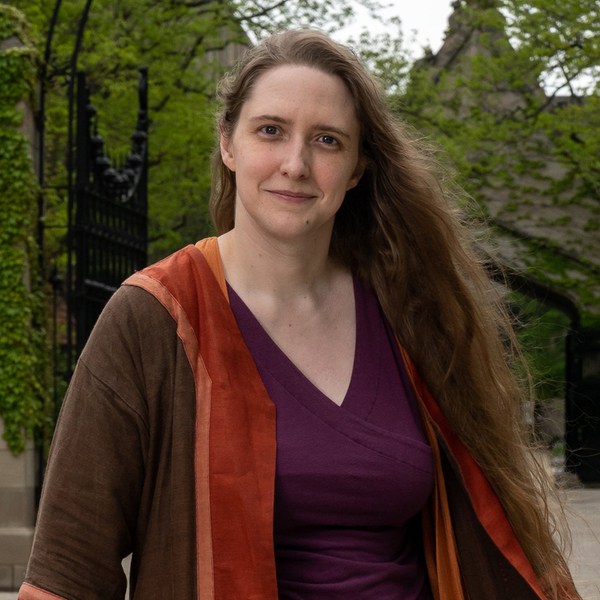 Ada holds an AA from Simon’s Rock and later received her BA from Bryn Mawr College
and PhD from Harvard University. She is a Science Fiction and Fantasy author, professor
of History, and a composer. Ada resides in Chicago, IL and has studied extensively
in Italy and throughout Europe.
Ada holds an AA from Simon’s Rock and later received her BA from Bryn Mawr College
and PhD from Harvard University. She is a Science Fiction and Fantasy author, professor
of History, and a composer. Ada resides in Chicago, IL and has studied extensively
in Italy and throughout Europe.
As a self-described Renaissance person, how do you decide which project to focus your energy on when you have so many to choose from?
Whenever we hear of someone finishing a creative project, we mark it as incredible to do so during the pandemic. That person may have also spent months being ill, or taking care of a crisis in their life. But we don’t depict the crisis or the emergency. Michelangelo’s autobiographical memoir references him as being in the middle of a lawsuit with a new pope who didn’t like him and didn’t want any art. He did not make any art for two years. He was too stressed out to be creative and he didn’t do anything. Nobody, no matter how much we think of them as a superhuman genius, avoids burnout. So when we look at our projects and only get a third of them done, so did Michelangelo. That’s what it is to be human. We cannot judge ourselves against the imaginary version of ourselves who didn’t live through real life.
What is your favorite flavor of gelato and why?
If I had to pick one, sour cherry sorbet which is hard to find, but really really good. I am also a big fan of red currant gelato. I also have a gelato maker, I cannot live without it.
“After the Plague, came the Renaissance.” Do you think life after the COVID-19 pandemic will be one of progressive creative and scientific advancement much like we saw following the Black Plague?
I just finished writing a book on this subject called Why Renaissance? The Invention of the Golden Age. The answer is no, but it is more complicated than that. This would have been the conclusion we would have reached in 1920, but our understanding of the Black Death has improved. It is interesting to ask the question why old and totally disproved history still perpetuates itself. Partly, the Renaissance wasn’t a golden age, and the other part of the answer is that the Black Death didn’t cause it. In a letter written to Machiavelli from a friend, Machiavelli is encouraged to finish writing the history of their time because “future generations will never believe how bad it was and they will never forgive us for losing so much so quickly.” This is the same decade da Vinci did the Mona Lisa and Michelangelo did the David and they had to live through a period that felt like an apocalypse. We look at the Golden Age of the Renaissance and we see these pieces of art they made and left, but we don’t see the things that didn’t survive, that burned down, the pieces unfinished, and that it felt like an apocalypse. We only see the golden parts.
Is there a part of Italian culture that you wish was a part of American culture?
In Italy, there is the general expectation that most stuff will fail to work a quarter of the time. In the US, we expect things to work so someone, individually, can utilize it. For example, a wheelchair ramp in the US is designed so that the person using it can do so independently and if access to that ramp should be cut off for a person in a wheelchair, everyone would just walk by because it is not their problem. In Italy, almost nothing is wheelchair accessible. If a person in a wheelchair even approaches a doorway, people will materialize out of thin air, approach the doorway and ask the person in the wheelchair if they need assistance getting up the stairs. Because of the shared assumption that things will not work, everyone is primed to spot when things are not working out. Alternately, in America, we expect things to work and if they don’t, then it is the problem only of the person who is responsible for that place. I’ve never had a problem in Italy and not had help.
Why do you give to Simon’s Rock?
I think Simon’s Rock is a unique and incredible resource that transforms the lives of young people the way it transformed mine. It creates community and connects people with what they really want to do.